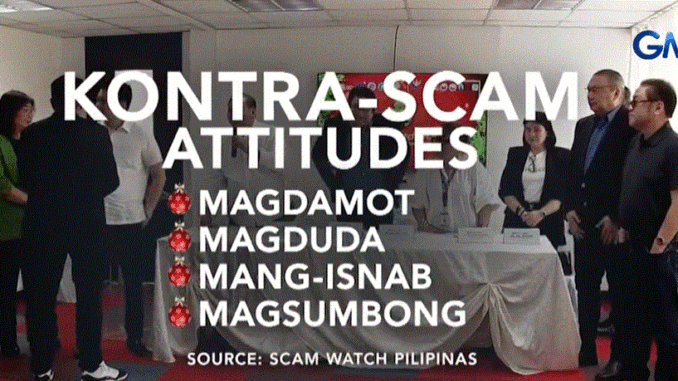
The Cybercrime Investigation and Coordinating Center (CICC) has warned the public to be alert against the “12 Scams of Christmas” ahead of the holidays.
According to a “24 Oras” report by John Consulta on Friday, the following “12 Scams of Christmas” were 12 crimes that are anticipated to proliferate during the holiday season:
- Fake online charities
- Phishing link sent through email or text correspondence
- Fake deliveries
- Fake tech support
- Fake relatives
- Scammers pretending to be family relatives
- Online shopping scams
- Love scams
- Fake job offers
- Scammers pretending to be pitiful online
- Scammers threatening that you have violated laws
- Commercials or offers that are “too good to be true”
The CICC has released tips to avoid falling victim to cyberscams, including calling the DICT hotline 1326 or reporting through the DICT e-gov superapp.
Online shoppers may also consult shops for National Privacy Commission Seals for safety, while investors may consult the SEC app to check if a company has a secondary license.
Free anti-scam app WhosCall may also help in identifying the safety of cellphone numbers and websites.
“Pwede po kayo magcopy paste ng URL, at sasabihin po sa inyo ni WhosCall kung safe link po ba ito, malicious link or dangerous link po iyon,” said Mel Milgriño from WhosCall.
(You can copy-paste URLs and WhosCall will tell you if the link is safe, malicious, or dangerous.)
Meanwhile, ScamWatch has released the following 4 important “kontra-scam attitudes” that the public may adapt to protect themselves from cybercrimes:
·Magdamot
·Magduda
·Mang-isnob
·Magsumbong
“Pinakaimportante po sakin mang-snub kasi yung tinuturo natin sa mga anak natin [na] ‘don’t talk to strangers’, pero tayo sa internet [at] sa social media, lagi natin ineenggage yung mga di natin kakilala,” said Jocel de Guzman of ScamWatch Philippines.
(The most important for me is to be a snob because we tell our children ‘don’t talk to strangers’, yet we always engage with people we don’t know through the internet [and] social media.) —Jiselle Anne Casucian/LDF, GMA Integrated News





Be the first to comment